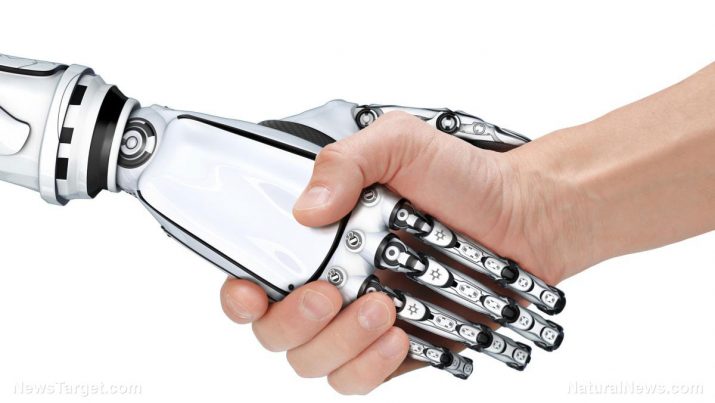
So, what are you going to do when a robot takes YOUR job? Here are some crazy ideas for your next gig
Saturday, November 25, 2017 by Frances Bloomfield
http://www.futuresciencenews.com/2017-11-25-so-what-are-you-going-to-do-when-a-robot-takes-your-job-here-are-some-ideas.html

What will you do when robots take over — take over the workforce, that is. Let’s face it: give them a few more years, and soon robots will be performing the bulk of labor for all kinds of industries. From manufacturing to transportation to foodservice, these are but some of the trades robots are being strong-armed into at the expense of human workers. And when robots do make the world their own, where does that leave you, job-wise? According to Hector Gonzalez-Jimenez, Lecturer in Marketing at The York Management School, there are a quite a few options for you to look into:
- Best Robot in Show organizers and judges — There are many people who form strong connections with their pets, and some who may even see them as status symbols. Either way, these deep attachments prompt some individuals to see their pets as extensions of their being and worth spending a pretty penny on. The same could one day apply to robots, wherein their “owners” customize their designs and exhibit them in shows, not unlike those for pets. This could then blossom into a movement that companies will take notice of, leading them to organize events for such displays of robotic pageantry. And of course, these competitions will need judges, which are highly-nuanced roles that robots can’t fill.
- Robot plastic surgeon — And who else could customize robots except those whose job is to make them appealing? Individuals with personal robots will want theirs to be tailor made to suit their needs. Whether that entails faster processors or longer limbs, robot plastic surgeons will take care of it. (Related: ‘R2-D2′ night watchman robot unveiled for patrolling schools, neighborhoods and more.)
- Robot nurses — “Just like us humans, robots will also need regular ‘health checks’ and periodical check-ups to make sure they are performing smoothly,” said Gonzalez-Jimenez. Though robot technicians already exist, robot nurses will be needed to provide the round-the-clock care that only medical attendants can give. “This is one occupation that could be in high demand when more robots are welcomed into homes.”
- Robot singing teacher — This may seem like an odd job option, but robots in the entertainment industry may be a reality in due time. Just look at Pepper, a humanoid robot by French robotics company Aldebaran Robotics. Pepper is capable of perceiving humans, issuing responses based on the mood of the moment, and singing Beethoven’s 9th Symphony. In time, robots could be putting on more elaborate performances for captive audiences, but they won’t be getting there without humans to develop the software and hardware needed for such feats.
- Robot travel agents — Those who’ve developed bonds with their robots will undoubtedly want to take their machines with them on their travels. “Just like humans, robots also need to be able to get around the place,” explained Gonzalez-Jimenez. “Which will see companies focused on robotic transport coming into business.” Robot travel agents would then take care of finding suitable accommodations for both human and robot — like airports with charging and maintenance stations, or passenger cars with adequate storage for robots.
Although these make future job prospects look grim, look at it this way: there are some things robots can’t do that only humans can. That’s why there will still be careers and niches that are predominantly occupied by flesh and blood. And as Gonzales-Jimenez put it: “While robots taking over our jobs could be a cause of concern for people in these professions, the fact of the matter is that the growth of the robotics industry will also help to revitalize the job market; helping to create numerous new roles and positions that haven’t even been invented yet.”
Remain updated on what the future has in store for automation by visiting Robotics.news today.
Sources include:
Tagged Under: Tags: artificial intelligence, automation, employment, future jobs, job loss, robotics, robots, unemployment





